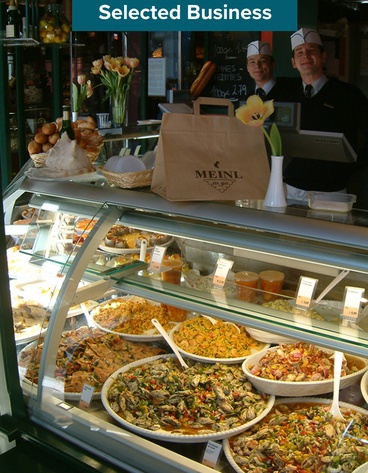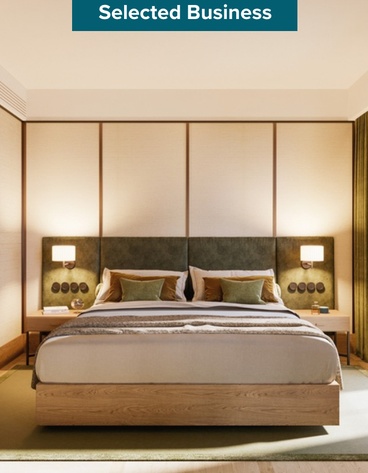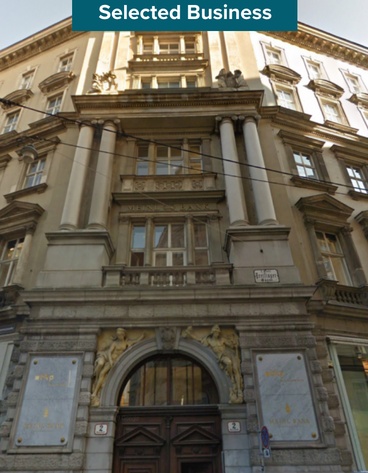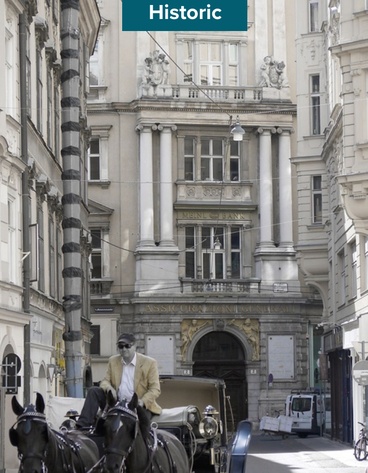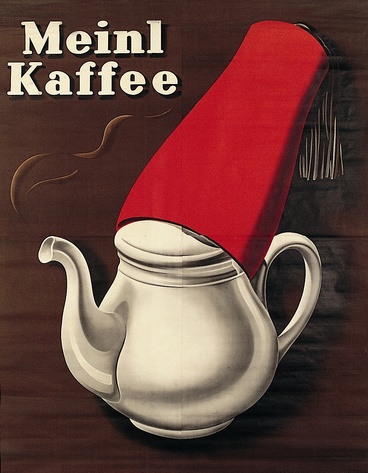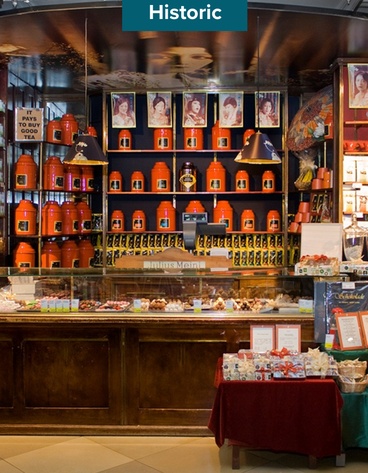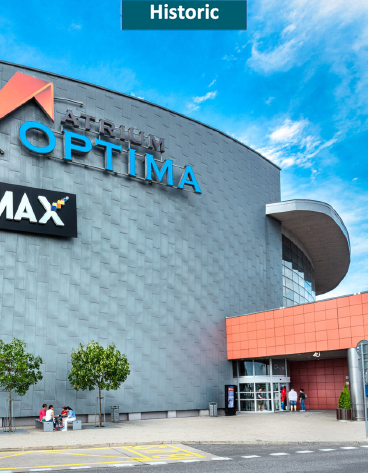1862
Julius Meinl I’s grocery shop begins to trade
1874
Julius Meinl I agrees a debt restructuring with his creditors
1877
Julius Meinl I begins to sell fresh roasted coffee from his shop
1892
Julius Meinl II joins the family business
1900
Julius Meinl has 11 shops in Vienna plus 5 warehouses in the suburbs and 40 “depots” in the Austrian provinces
1907
Julius Meinl workers get Sundays off work
1910
Julius Meinl I’s remaining debts are finally paid off
1913
Julius Meinl I retires. Julius Meinl II takes over the business
1914
Julius Meinl has 115 shops in three countries plus a total of 185 “depots”
1923
Foundation of the forerunner of Meinl Bank, the ‘Spar- und Kreditverein der Angestellten und Freunde der Julius Meinl AG’
1924
Julius Meinl introduces for the first time the Meinl Moor logo, designed by Joseph Binder
1931
Julius Meinl reduced the 5 day working week from 48 hours to 43, with pay for 45 hours
1933
Julius Meinl II restricts his role to that of President of the Board of Directors; Julius Meinl III joins management
1933
The Austrian Government passes the Lex Meinl Preventing Julius Meinl from opening further stores
1935
Julius Meinl reduced the 5 day working week from 43 hours to 40, on full pay
1935
Julius Meinl acquires the 79 stores of Brüder Kunz and a shareholding in Wiener Öl-Werke AG
1936
Julius Meinl acquires Continentale Bank AG
1937
Julius Meinl acquires Konservenfabrik Gourmet KG and has 572 stores plus 600 depots in 8 countries
1938
Following the Anschluss of Austria the Nazi regime replaces the managing director of Julius Meinl
1938
Julius Meinl III steps down and goes into exile in England
1939
Rationing as part of the war economy fundamentally changes Julius Meinl’s business
1940
Julius Meinl becomes obliged to supply the Wehrmacht
1944
Julius Meinl has almost a hundred production sites and around 700 stores
1944
Julius Meinl II dies. His adoptive son, Fritz Meinl becomes President of the Board of Directors
1945
Julius Meinl operations in newly communist central and esastern European countries are sequestered by their governments
1947
Julius Meinl III returns to Austria and becomes President of the Board of Directors
1956
Foundation of Meinl Bank
1980s
Julius Meinl remains one of two dominant food retail businesses in Austria
1987
Julius Meinl III dies and Julius Meinl IV becomes President of the Board of Directors of Julius Meinl
1987
Julius Meinl V becomes Chairman of the Management Board of Meinl Bank (effectively CEO)
1989
Fall of Berlin Wall – Meinl Bank positions itself to expand across central and eastern Europe
1990s
Julius Meinl’s share of the Austrian food retail market falls to c6% as it struggles to keep pace with new competitors
1990s
Julius Meinl reestablises food retail activities across central and eastern Europe
1996
Together with Invesco, Meinl Bank founds a central and Eastern European private equity fund called Fulcrum I Equity
1997
Together with Caledonia Investments, Meinl Bank founds the entity that becomes Meinl European Land
1998
Decision to sell food retailing activities in Austria and beyond (excluding Julius Meinl am Graben)
1999
Julius Meinl sells its food production activities
2002
Meinl European Land is floated on the Vienna Stock Exchange
2005
Julius Meinl Coffee moves to a new main roasting facility in Vicenza, Italy
2007
Flotation of Meinl Airports International and Meinl International Power
2007
Fulcrum I Equity sells Kandia Excelent to Cadbury Schweppes
2008
End of Meinl Bank’s involvement with Meinl European Land. The company becomes Atrium European Real Estate
2010
Kandia Excelent, now renamed Kandia Dulce, is re-acquired and becomes the nucleus of KEX Confectionery
2011
Foundation of Fulcrum as a principal investor in and developer of shopping centres in in central and eastern Europe
2012
Kandia Dulce acquires Supreme Group
2013
KEX Confectionery acquires Niemetz in Austria and Heidi in Romania
2015
Niemetz moves to a new, purpose built factory for its Schwedenbomben
2018
Julius Meinl Living acquires its first aparthotel property in Prague
2019
Julius Meinl Living agrees to acquire a second property, in Belgrade


